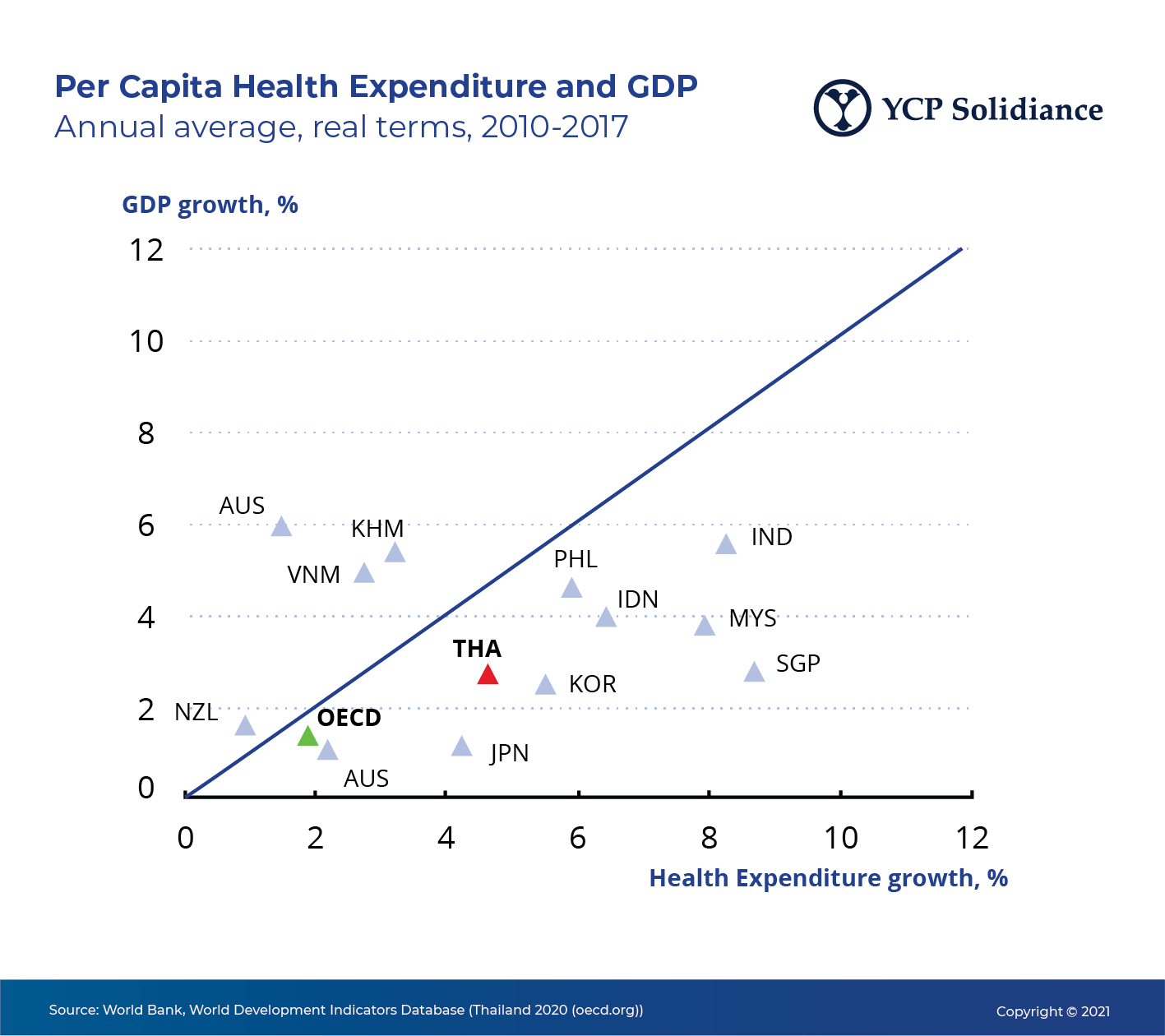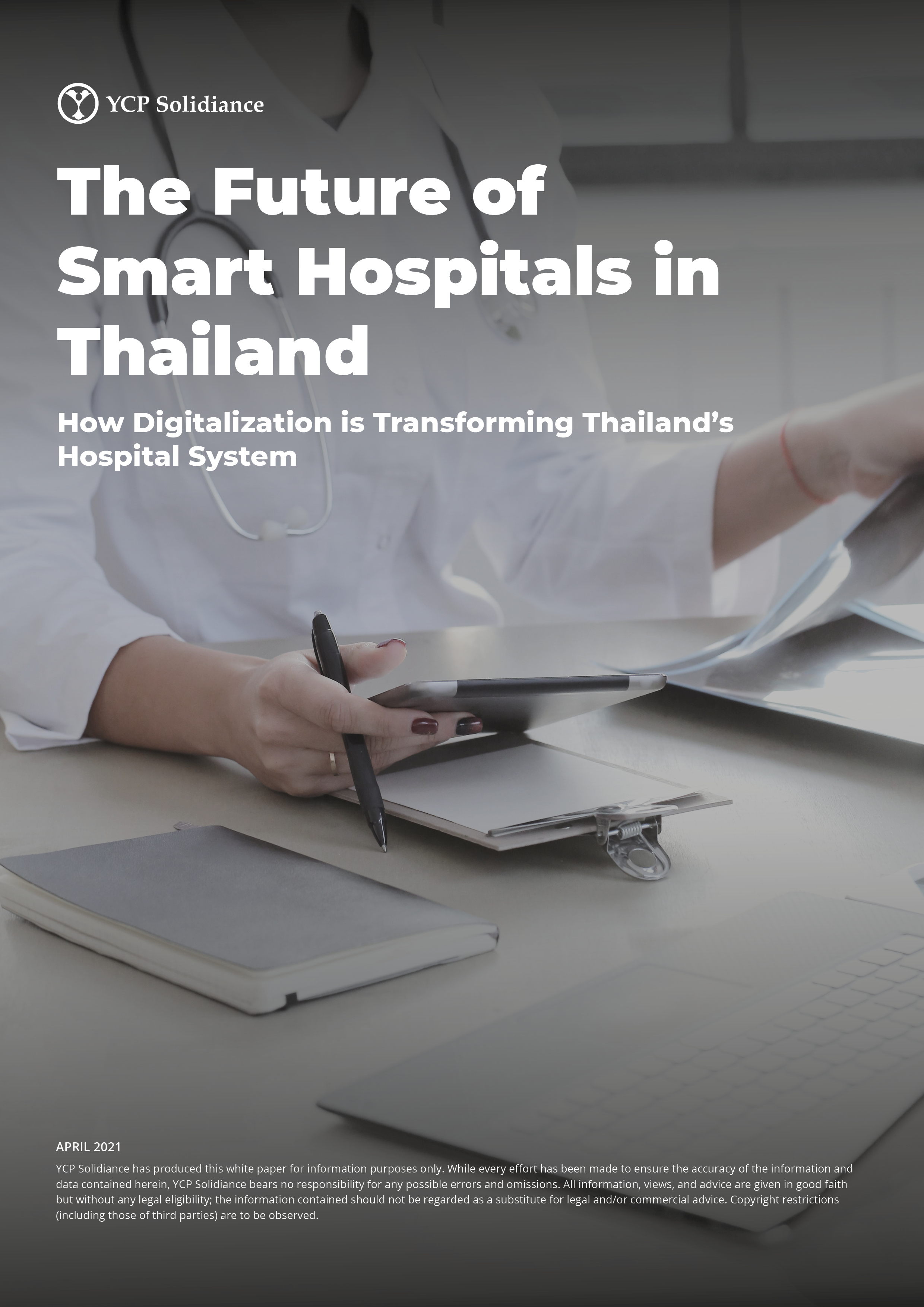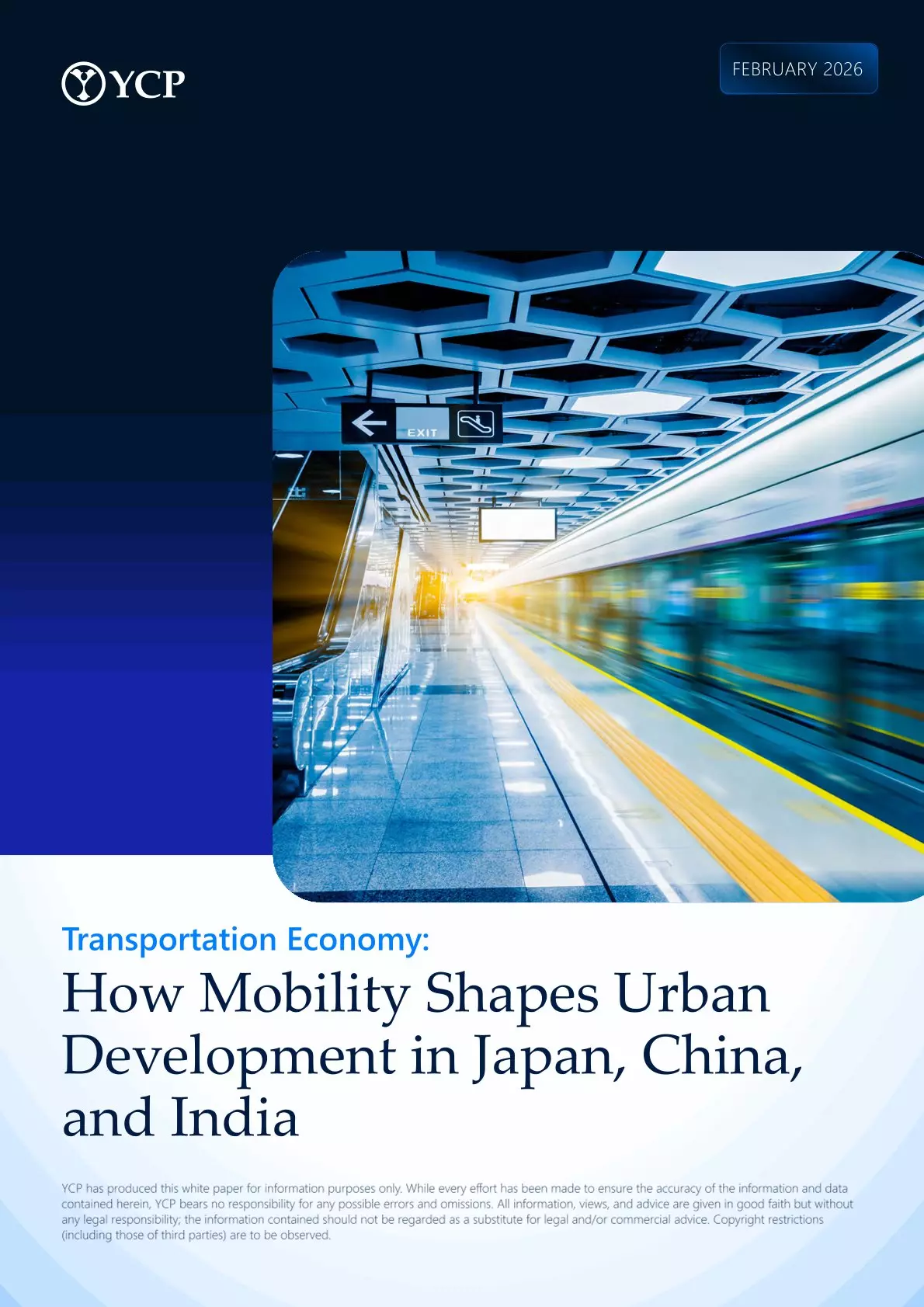Since 2019, Thailand's healthcare costs have exceeded its per capita GDP growth and surged by 21% within four years. Total health expenditure had significantly grown from THB 359 billion in 2015 to THB 436 billion in 2019. The healthcare sector in Thailand faces significant challenges such as evolving medical needs, increasing health care spending, and limited infrastructure.
These issues put the high-quality service provided to patients at risk, and the prevalence and severity of chronic diseases that grow along with the elderly population ratio in the country have also resulted in higher healthcare costs. Besides its financial burden, Thailand is also faced with an insufficient number of hospitals to manage the health needs of the country’s population. In reality, hospitals in Thailand have only 1,380 beds in total against 69.8 million people.

Digitalization to Deal with Thailand’s Healthcare Challenges
Our report highlights that the adoption of digital technologies in the Thai healthcare industry is vital to unlocking healthcare providers’ full potential and achieving better outcomes at lower costs. Using integrated IoT systems will also reshape the relationship between healthcare providers and patients.
However, digital services in healthcare remain quite few due to hospitals’ incapability to access vast amounts of data. Realizing this urgent need, players within the healthcare sector now see the opportunity to collaborate with tech providers to develop digitized healthcare systems.
This study explores the current initiatives of Thailand’s public and private hospitals to bring digital solutions into the industry, along with a high-level overview of the opportunities in going digital. More healthcare providers are realizing that these digital measures are necessary to enable seamless patient flow and data-driven systems that eventually lead to improved efficiency, reduced operational costs, better management, and more comprehensive transformational programs for healthcare ecosystems.






